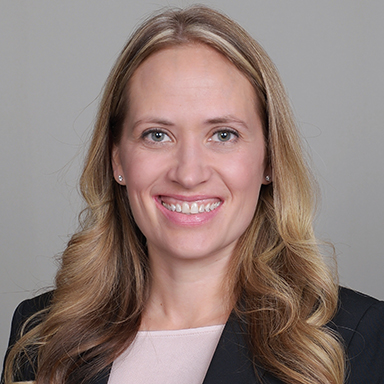Over the past few years, many companies have encountered staffing challenges including high turnover, evolving return-to-office policies and upward pressure on wages. In a competitive talent landscape, CFOs and leadership teams are exploring flexible labor models within their finance departments to help counter these challenges. These flexible models lean into automation tools and encourage creative approaches to staffing.
What’s causing this shift toward flexible labor models?
Companies are being pushed toward flexible finance labor models by three main factors: difficulty attracting and retaining finance staff, the rising cost of wages and benefits, and employee expectations regarding remote and hybrid work.
Difficulty attracting and retaining finance staff
In my job as a commercial banker working with middle-market CFOs and CEOs, rarely does the subject of staffing challenges not come up during a meeting. According to a study by Deloitte1, 82% of hiring managers for accounting and financial positions at public companies said they expect to face recruiting difficulties in the year ahead, and 74% of their peers at private companies agreed. A similar percentage of respondents in both groups also said they’ve dealt with retention issues in the past 12 months.
What’s causing this? At many companies, financial roles have become more complex. This was particularly true amid the COVID-19 pandemic, when corporate leaders saw that they needed access to more granular information to make fact-based business decisions that would help them navigate through uncertainty. This led many companies to upgrade their enterprise resource planning (ERP) systems to provide more accurate and timely data. These projects are typically led by IT teams, but increasingly, finance teams have been pulled in to help bring finance, supply chain and other functions together. As a result, many companies now need larger finance teams to handle the increased workload, and they’re seeking candidates with technology skills in addition to their financial backgrounds. With more organizations looking for more specialized finance professionals, the competition over talent has become fierce.
Rising cost of wages and benefits
With companies competing over specialized financial talent, they’re having to pay more to get and keep the people they want. In 2022, wages and salaries for employees in the financial sector across the U.S. increased by 5%. That’s on top of a 4% increase in 20212.
Remote and hybrid work
According to McKinsey3, 87% of Americans want to work in a flexible environment that allows for work in an office setting as well as virtually. Some employers have accepted remote or hybrid work as a long-term solution, allowing them to hire from a larger pool of candidates geographically, more easily attract talent, and reduce office space and related costs. However, many companies have mandated formal return-to-office policies with varying levels of flexibility citing the need for employee collaboration, workplace culture and knowledge sharing. While these policies may make sense for certain organizations, the flip side is potentially missing out on talent that is looking for a remote or hybrid opportunity.
What does a flexible labor model look like for a finance department?
The factors noted above are pushing companies toward more flexible models within their finance teams. Here are some ways companies are being more flexible.
Embracing financial automation tools
Automation tools go far beyond production floors and can be used in a variety of departments, including finance. These tools provide the ability to effectively outsource many repetitive tasks to free up time for the finance team to work on strategic initiatives and special projects. Many banks can offer their commercial customers automation tools such as integrated payables, integrated receivables and online payment portals, which significantly reduce time spent on transaction processing, invoice reconciliation and data entry.
Hiring and promoting differently
To find the right people for today’s finance department roles, organizations are being more creative with their talent strategies. That includes:
Reconfiguring job requirements in job postings
Removing some educational requirements, industry credentials, and requirements for prior experience and focusing instead on the critical skills needed to perform a job effectively allows a company to cast a wider net in its talent search.
Augmenting teams with temporary staffing
While the use of open talent (such as contract or temporary workers) was relatively small prior to the COVID-19 pandemic, more companies are employing open talent to access skilled workers for a variety of positions, including in finance. Investments in video conferencing tools and other technology to connect with remote workers has aided this growth. This can be an ideal way to find qualified candidates for assistance during special projects such as ERP implementations.
Encouraging internal talent mobility
Employers should be redeploying existing talent to the departments within the organization that have the greatest need. This may require upskilling or reskilling talent to be able to perform different duties or operate cross-departmentally.
Leveraging managed service providers
Unlike temporary staff, a managed service provider (MSP) is an organization you contract with to provide services on an ongoing and remote basis to improve operational efficiencies. While MSPs have historically been leveraged for IT services, MSPs are increasingly being used for payroll and benefits administration, HR and other support that often can roll up through the CFO of middle-market companies.
Organizations that adopt these flexible strategies stand the best chance of finding and retaining the right financial talent, which will position them well for the future.

